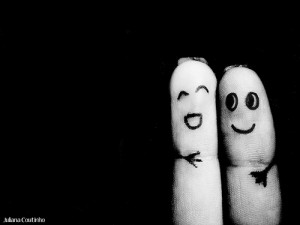When Claudia’s mother died last year, her father seemed to handle the loss better than she had expected. During her weekly Sunday visits, she surreptitiously checked to see if there were groceries in the fridge and clean clothes in his closet. Satisfied that he was managing on his own, she resisted the urge to worry. Then the phone rang late one evening: Mrs. Bellows, her father’s next-door neighbor, found him in his back yard with a badly sprained ankle, unable to get up. When Claudia arrived to take her father to the Emergency Room, she learned that he had lain in the grass nearly four hours before Mrs. Bellows noticed him.
Incidents like the one above are often the first sign that aging parents may need help to stay safe and have access to help when they need it. A medical alert system is the logical choice to ensure a loved one’s safety and reassure worried friends and family members. When the subject is brought up with a loved one, however, they often vigorously object; in Claudia’s case, her father was adamant that his fall was a minor event—after all, his neighbor had rescued him and he came to no lasting harm.

As people age, their vision and coordination gradually diminish and the risk of falling increases exponentially. According to a recent Yale study published in the New England Journal of Medicine, one-third of all 65-year-olds will fall in a given year; by age 80, the number jumps to nearly two-thirds. Health conditions common in older people contribute to the risk of falling: Medications for high blood pressure or heart disease can cause dizziness upon standing, for example. Injuries sustained in a fall are often more severe in older people; osteoporosis is common after age 60, especially in women, increasing the risk of broken bones from even a minor fall.
It is true that observant neighbors and friends from church or social clubs can be extremely helpful to vulnerable older people living alone. They drop by to visit, perhaps help with doctor visits and grocery shopping, and notice when something is amiss in their neighbor’s daily routine. And often, they feel terrible when something happens, shouldering an unnecessary responsibility.
For Claudia’s father, he was lucky he fell on a warm June evening; had he fallen in December, he might have suffered frostbite or worse. Claudia explained that not only would she feel better knowing her father had instant access to emergency help, his friends and neighbors would have peace of mind, too. Claudia’s father agreed that a medical alert system was a sensible idea to help him maintain his independence while living alone.